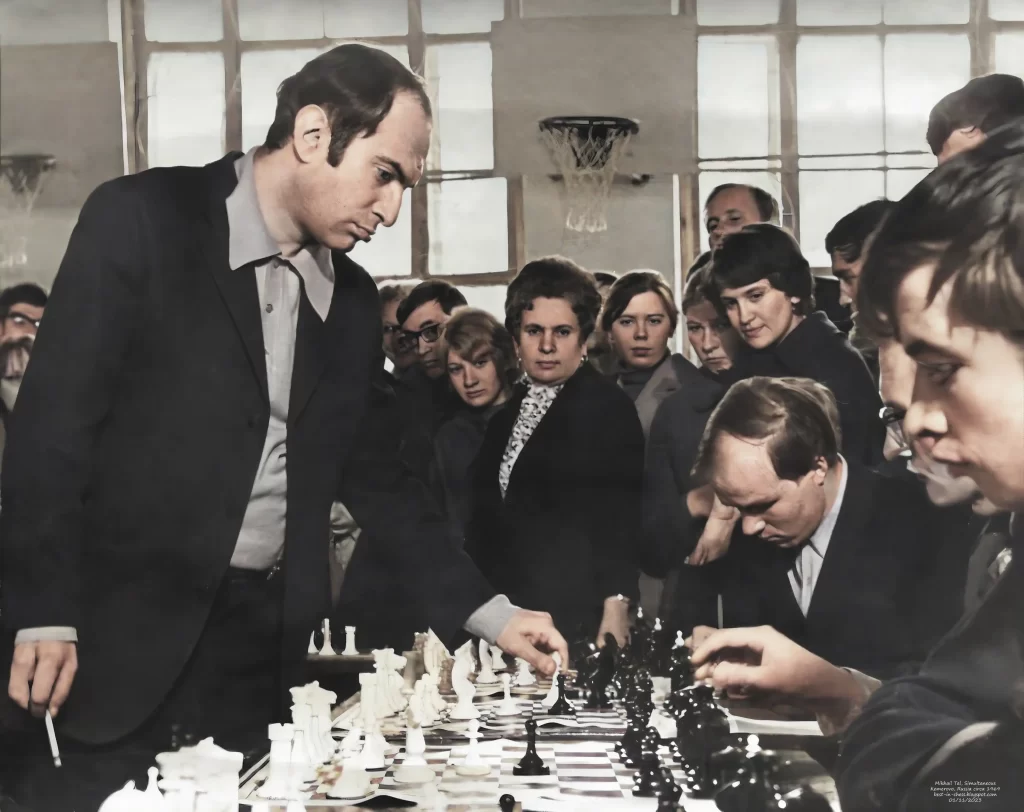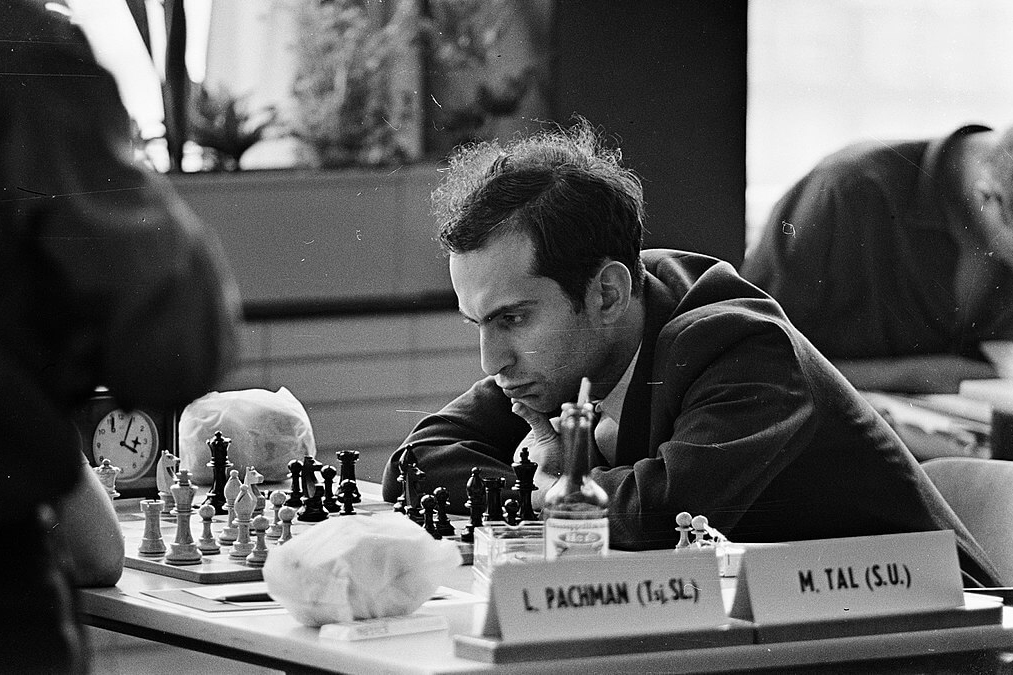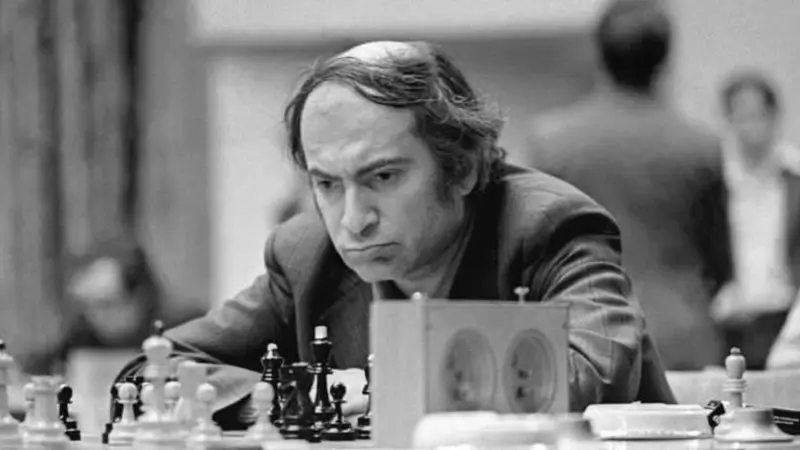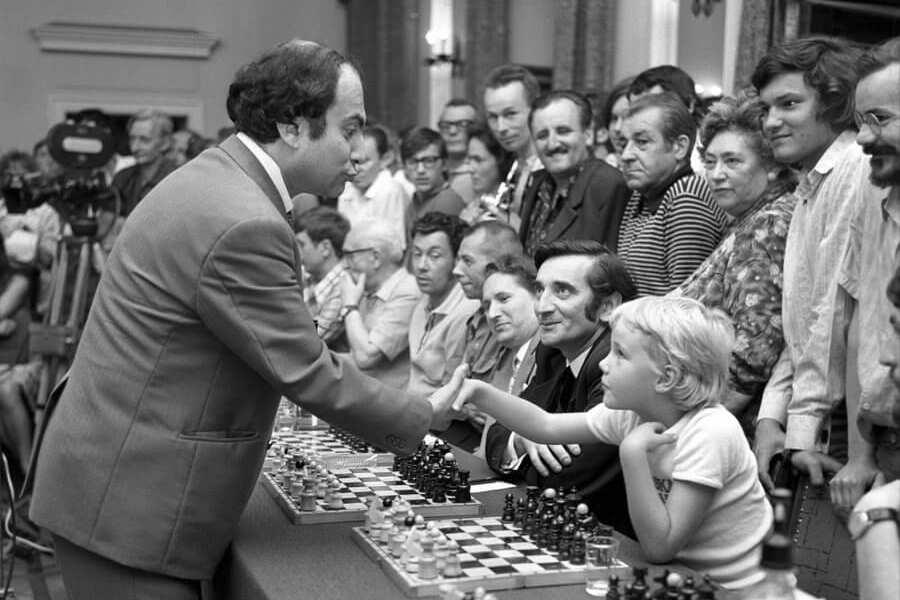No products in the cart.
Chess Players
The Masterful Playing Style of Mikhail Tal – Chess Legend
Mikhail Tal was a chess grandmaster from Latvia who is considered one of the greatest attacking players of all time. Tal was known for his aggressive and imaginative playing style, which often left his opponents in awe. He was the eighth World Chess Champion, holding the title from 1960 to 1961. He had a great intuition for tactics and was known for his sharp calculation skills. Despite struggling with health issues throughout his career, including kidney failure and liver problems, Tal continued to play at the highest level and remained a beloved figure in the world of chess until his death in 1992 at the age of 55. His legacy as a chess legend continues to inspire and influence players to this day.
Table of Contents
Early Life and Background of Mikhail Tal
Mikhail Tal was born on November 9, 1936, in Riga, Latvia, and was widely regarded as one of the most creative and dynamic chess players of all time. He demonstrated a natural aptitude for chess from a young age, learning the game at just six years old. Despite facing numerous obstacles, including World War II and the Soviet occupation of Latvia, Tal continued to develop his chess skills, playing in local tournaments and studying the game relentlessly.
At the age of 14, Tal made a name for himself by winning the Latvian Championship, impressing the chess world with his aggressive and imaginative style of play. However, his progress was soon hindered by a series of health problems, including kidney issues, which required him to take a break from the game and focus on his health. After recovering, Tal returned to chess with a renewed passion, honing his skills and competing in tournaments across the Soviet Union. He quickly gained a reputation as a player to watch, using his unique playing style to surprise opponents and win games in spectacular fashion. Tal’s daring and creative approach to chess, characterized by bold sacrifices and imaginative combinations, earned him the nickname “The Magician from Riga.” In 1960, at the age of 24, Tal achieved the ultimate chess honor by becoming the youngest player ever to win the World Chess Championship, a feat that cemented his place in chess history. His victory over defending champion Mikhail Botvinnik, widely considered one of the greatest chess players of all time, was a testament to Tal’s extraordinary playing style and his ability to outmaneuver even the most skilled opponents.
Despite facing numerous setbacks and health issues throughout his career, Tal remained an iconic figure in the world of chess, inspiring generations of players with his imaginative and unpredictable playing style. His contributions to the game, both as a player and as a teacher and mentor, have left an indelible mark on the history of chess, earning him a place among the all-time greats.
Chess Career and Achievements of Mikhail Tal
Mikhail Tal’s chess career spanned from the 1950s to the early 1990s, during which he established himself as one of the greatest chess players of all time. His playing style was characterized by his aggressive approach, creative tactics, and willingness to take risks. He was a formidable opponent who could make even the strongest players tremble.
Tal’s breakthrough in the world of chess came in 1957 when he won the USSR Championship at the age of 20. This victory made him the youngest-ever champion at the time, and it announced the arrival of a new star on the chess scene. The following year, he went on to win the Interzonal Tournament in Portoroz, which qualified him for the Candidates Tournament, the final step before the World Chess Championship. In 1960, Tal won the Candidates Tournament to earn the right to challenge Mikhail Botvinnik for the World Chess Championship. In a tense and closely contested match, Tal emerged victorious with a score of 12.5-8.5 to become the youngest-ever World Chess Champion at the age of 23. He successfully defended his title against Botvinnik in a rematch the following year, with a score of 10.5-5.5. Tal’s success was not limited to World Championships, as he won numerous other tournaments throughout his career. He won the USSR Championship a total of six times, and he was also a three-time winner of the prestigious Hastings International Chess Congress. He was known for his success in blitz chess, a faster-paced version of the game that requires quick thinking and rapid decision-making. In 1988, he won the first-ever World Blitz Chess Championship.
Mikhail Tal – The Magician from Riga
Mikhail Tal, also known as the “Magician from Riga,” was a chess grandmaster who was renowned for his aggressive playing style and unpredictable tactics. Tal’s playing style was characterized by his creativity and his willingness to take risks, often sacrificing material in order to gain an advantage on the board.
Tal’s tactical genius was evident in his games, as he was known for his ability to find brilliant combinations and unexpected moves that would catch his opponents off guard. He had a keen sense of intuition and was able to calculate complex variations quickly and accurately. One of Tal’s signature strategies was the use of the “Tal Sacrifice,” where he would sacrifice one or more pieces in order to gain positional advantage or to launch a devastating attack on his opponent’s king. This strategy was often successful, as Tal’s opponents would struggle to find the correct defense against his relentless attacks. In addition to his tactical brilliance, Tal was also a master of the endgame. He had a deep understanding of the nuances of different endgame positions and was able to outmaneuver his opponents in seemingly equal positions.
Legacy and Influence on the Chess World
Tal’s influence on the game was not limited to his playing style alone. He was also known for his sportsmanship, humility, and his unwavering love for the game. Despite his incredible success and status as a chess legend, he remained humble and approachable, always willing to share his knowledge and insights with others.
Perhaps Tal’s greatest legacy lies in the way he approached the game of chess. He saw chess as an art form, a means of creative expression, and a way to explore the depths of the human mind. His innovative ideas and bold playing style pushed the boundaries of what was thought to be possible in the game, inspiring future generations of players to think outside the box and approach the game with a sense of creativity and imagination.
Tal’s legacy is also evident in the way that modern players approach the game. Many of today’s top players have cited Tal as a major influence on their playing style and strategic approach. His emphasis on creativity, intuition, and bold play continues to inspire players at all levels of the game, from novice enthusiasts to seasoned professionals.
In recognition of his tremendous contributions to the game, Tal was awarded numerous honors and accolades throughout his career, including the title of World Chess Champion in 1960. He remains an iconic figure in the world of chess and his legacy continues to shape the way that players approach the game today.




